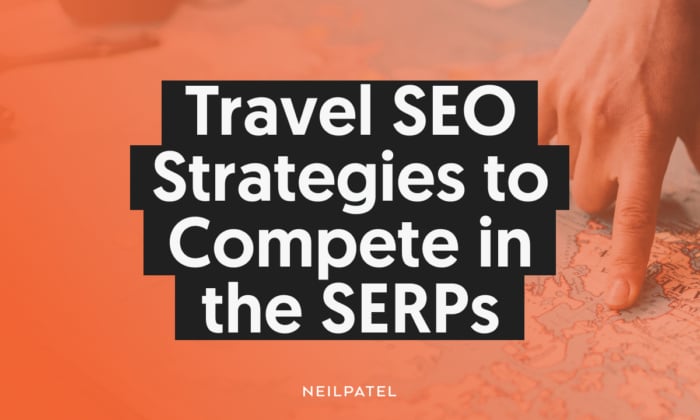To effectively optimize an insurance company’s website for search engines, focus on relevant keywords and quality content. Implement a strong backlink strategy and ensure a responsive website design.
As insurance companies vie for online visibility, SEO plays a pivotal role in capturing potential clients’ attention. The competition in the insurance sector is fierce, and a comprehensive SEO strategy is crucial for standing out in search engine results. A solid SEO plan involves researching and utilizing keywords that prospects might use when seeking insurance services.
Creating informative and engaging content not only helps in ranking higher on search engines but also establishes the company’s authority in the insurance field. Additionally, optimizing website speed, mobile-friendliness, and user experience can drastically improve search rankings. A robust online presence with credible backlinks enhances trust, potentially increasing customer acquisitions. All these elements, blended together, form the backbone of a successful insurance SEO approach.

Credit: farotech.com
Importance Of Seo For Insurance Companies
Surviving and thriving in the competitive world of the insurance industry hinges significantly on a company’s online presence. With more consumers turning to the internet to compare policies and providers before making a decision, insurance companies are recognizing the pivotal role of SEO (Search Engine Optimization) in capturing these potential clients. It is not just about being online; it’s about being visible. Implementing strategic SEO tactics can propel an insurance company to the top of search results, thereby increasing its credibility and customer base.
Businesses Need For Online Visibility
In today’s digital age, an insurance company’s online visibility is equivalent to its physical handshake with potential clients. The first impression a company makes in the digital realm can have lasting effects on its reputation and success. By optimizing their website, insurance providers ensure that:
- Brand recognition increases, making the company more recognizable to consumers.
- User experience is enhanced, keeping potential customers engaged on their site.
- Website content is aligned with what consumers are searching for, aiding in lead generation.
Impact Of Organic Traffic On Revenue
Organic traffic, the stream of visitors that comes to your site from unpaid search results, is a critical component of the health of an insurance company’s online business. High-quality, organic traffic has the potential to significantly:
- Boost conversion rates as users are actively looking for solutions that the company offers.
- Increase the return on investment (ROI) from marketing efforts by pulling in a consistent and cost-effective stream of potential clients.
- Promote long-term revenue growth by establishing a steady influx of clients who are more likely to trust and engage with a site that ranks highly on search engines.
Identifying Relevant Keywords
Identifying relevant keywords is a cornerstone of any successful SEO strategy, especially for insurance companies. In the competitive insurance market, understanding and leveraging the right keywords can make or break your online presence. They form the bridge between what your potential customers are searching for and the content you provide that meets their needs. Let’s delve into the art of choosing keywords that help your insurance business stand out in the digital landscape.
Long Tail Keywords For Insurance
Long tail keywords are more specific and generally longer than more common ‘head’ keywords. They have a magic about them; not only do they tend to have lower competition, but they can also attract highly targeted traffic. A visitor who types in ‘affordable family health insurance in Ohio’ shows a clear intent and is likely further along in the decision-making process than someone who simply searches ‘insurance.’
Here are some benefits of incorporating long tail keywords into your strategy:
- They reflect a user’s specific intent, leading to higher conversion rates.
- Their specificity makes it easier to rank for them.
- They help you attract a target audience looking for exactly what you offer.
Use keyword research tools to uncover these longer, more conversational queries. Start with broad insurance terms and then expand them into long tail variations to capture your niche market’s attention.
Trends In Insurance-related Search Queries
Staying updated with trends in insurance-related search queries is pivotal for ensuring your content remains relevant and easily discoverable. Seasonal spikes, emerging products, or changes in industry regulations can all influence how and what users search for. Tools like Google Trends can help you monitor fluctuations and spot patterns in insurance search queries, giving you a timely insight into the market.
A cutting-edge SEO approach involves the analysis of these trends:
- Look for increased interest in specific types of insurance during certain times of the year.
- Examine the impact of global events on insurance needs and queries.
- Adapt content to cater to rising search trends, staying ahead of competitors.
By tracking these trends, you can optimize your content calendar to align with the ebb and flow of your audience’s interests, ensuring you’re not just a part of the conversation, but leading it.
Optimizing Insurance Website Content
When diving into the competitive world of online insurance marketing, the power of your content cannot be underestimated. Optimizing insurance website content is crucial for connecting with potential clients and ranking higher in search engine results. Smart SEO strategies tailored specifically for insurance companies can transform your online presence, making your pages the go-to resource for insurance shoppers.
Writing compelling meta descriptions and titlesWriting Compelling Meta Descriptions And Titles
Meta descriptions and titles are like the window displays of your website—they entice potential customers to enter and discover more. A compelling title paired with an engaging meta description can significantly enhance your site’s click-through rates. Begin by incorporating:
- Targeted keywords relevant to your insurance services that resonate with user queries.
- Action-oriented language that encourages clicks and conveys value quickly.
- Brand attributes that differentiate your services from the competition.
Remember to keep your titles under 60 characters and meta descriptions about 155 characters to ensure they are displayed effectively in search results.
Importance of high-quality, relevant contentImportance Of High-quality, Relevant Content
Crafting high-quality content that is both informative and relevant to your audience is at the heart of good SEO. Insurance buyers seek trust and clarity; therefore, your content should address:
| Customer Pain Points | Insurance Solutions | Industry Insights |
|---|---|---|
| User concerns about coverage gaps, costs, and processes | Detailed explanations of insurance plans, benefits, and comparison guides | Latest trends, data security, and regulatory changes affecting insurance |
By using a mixture of content types such as blog articles, FAQs, and testimonials, an insurance website can address a wide range of user needs. Engage readers with content that simplifies complex insurance topics, uses authoritative data, and creates a narrative that aligns with your audience’s experiences.
Consistently update your content to reflect the latest information, and consider adding interactive elements like cost calculators or personalized assessment tools to enhance user engagement.
Building Backlinks For Insurance Websites
Building backlinks for insurance websites is a crucial component of a robust SEO strategy. In the competitive insurance market, authoritative backlinks not only improve your website’s domain authority but also drive relevant traffic and increase visibility. A variety of tactics can be implemented to develop a strong backlink profile, each playing a pivotal role in propelling your insurance business ahead of the competition.
Guest posting on insurance-related websitesGuest Posting On Insurance-related Websites
Creating guest posts provides a two-fold benefit; it showcases expertise in the insurance industry while securing valuable backlinks. When selecting websites for guest posting, focus on:
- Relevancy: Sites should be related to insurance or financial matters.
- Authority: Target websites with high domain authority for more significant SEO impact.
- Engaged Readership: Engage with platforms that have an active community for increased exposure.
When crafting guest posts, include meaningful content that offers actionable insights to readers, addresses industry challenges, and showcases your expertise. Provide contextual backlinks that naturally integrate with the content for the best user experience.
Leveraging social media for brand visibilityLeveraging Social Media For Brand Visibility
Social media platforms are powerful tools for enhancing brand visibility and earning backlinks. Effective strategies for insurance companies on social media include:
- Consistently posting valuable content that is share-worthy.
- Engaging with followers through comments and messages to foster community.
- Creating shareable infographics or statistics related to insurance that can attract backlinks from trusted sites.
Highlight noteworthy insurance content, like articles or blog posts from your website, to encourage sharing among followers, which can attract backlinks from various online users and entities. Use relevant hashtags to increase the reach of your posts and participate in trending conversations related to insurance topics to increase visibility and attract natural backlinks.
Tools For Analyzing Insurance Seo Efforts
In the competitive landscape of insurance marketing, understanding the effectiveness of your SEO tactics is pivotal. The right analytical tools can provide actionable insights into the performance of your digital marketing strategies. These tools help you to track key SEO metrics, identify opportunities for improvement, and measure your progress over time. By analyzing this data, insurance companies can fine-tune their online presence to reach potential customers more effectively and boost overall website performance.
Tracking Organic Traffic And Click-through Rates
To measure the health of your SEO efforts, tracking organic traffic and click-through rates (CTRs) is essential. Organic traffic indicates the number of visitors coming to your website from search engines, and CTR measures the percentage of users who click on your site after viewing the search results. Increased organic traffic and high CTRs often correlate with successful SEO campaigns, indicating that your website is visible and appealing to potential clients.
An effective tool for tracking these metrics is Google Analytics. It offers comprehensive reports that help you analyze:
- The total number of organic search visitors
- Behavior flow to see how users interact with your site
- Conversions from organic search traffic
- CTR from search results pages
Understanding these metrics allows you to better cater your content to the audience’s preferences, potentially leading to more policy inquiries and sales.
Adjusting Strategies Based On Performance Metrics
Performance metrics serve as a feedback mechanism for your SEO strategies. As search engine algorithms are constantly evolving, it’s important for insurance companies to stay adaptive. Analyzing metrics such as keyword rankings, backlink quality, and on-page optimization factors, informs whether your strategies need refinement.
Tools like SEMrush or Ahrefs offer in-depth SEO performance analysis, including:
| Tool | Key Features |
|---|---|
| SEMrush |
|
| Ahrefs |
|
With the insights from these tools, you can adjust your content, optimize your website structure, and build a stronger backlink profile—all of which contribute to a higher ranking on search engine result pages. These adjustments, based on reliable data, will help drive targeted traffic to your insurance website and increase engagement with your brand.
Frequently Asked Questions Of Seo For Insurance Companies – Insurance Seo Tips
Why Is Seo Important For Insurance Companies?
SEO helps insurance companies improve their online visibility, attracting more potential customers. It targets specific keywords to rank higher on search engine results, driving organic traffic and leads.
What Are Top Seo Strategies For Insurance Firms?
Effective SEO strategies include optimizing website content for relevant keywords, building quality backlinks, and maintaining a strong local SEO presence. Regularly updating content and ensuring mobile-friendly design are also key.
How Does Local Seo Benefit Insurance Agents?
Local SEO helps insurance agents target local prospects. Listing on Google My Business, local directories, and using location-specific keywords increases the chances of appearing in local search results.
Can Blogging Boost Insurance Seo Efforts?
Yes, blogging can significantly boost SEO for insurance companies. It allows for regularly adding fresh, relevant content that targets industry-specific keywords, which improves search engine rankings and user engagement.
Conclusion
Embracing these SEO strategies will significantly enhance your insurance company’s online visibility. Remember, consistent effort and up-to-date practices are key to ranking success. With these tips, your agency can outshine competitors and attract more clients. Start optimizing now and watch your online presence grow!





